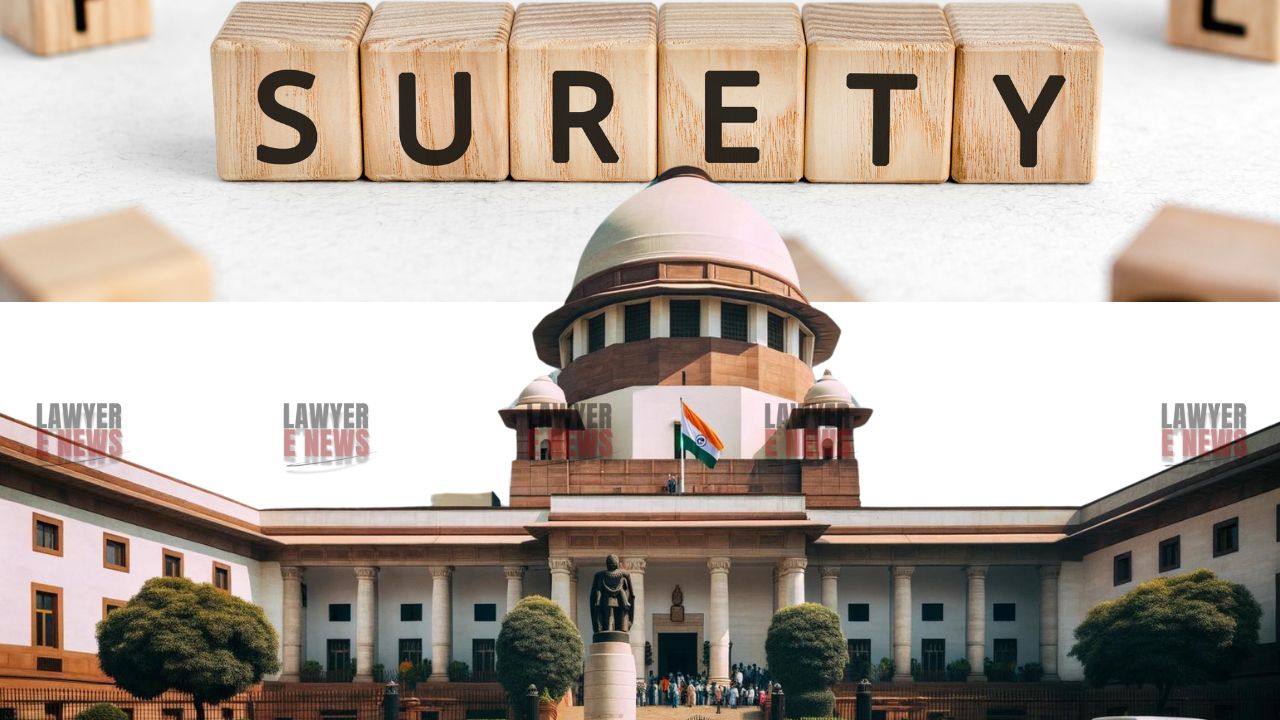-
by sayum
14 February 2026 2:22 PM



SC grants relief to petitioner by permitting the same set of sureties for multiple bail orders, emphasizing the balance between legal obligations and fundamental rights. In a significant judgment, the Supreme Court has ruled that a petitioner, Girish Gandhi, can use the same set of sureties across multiple bail orders from different states, thereby easing the onerous condition of furnishing separate sureties in each case. The bench, led by Justices B.R. Gavai and K.V. Viswanathan, delivered this decision in light of the petitioner’s difficulties in securing separate sureties in 11 out of 13 cases across various states, including Uttar Pradesh, Rajasthan, Punjab, and Uttarakhand.
Girish Gandhi, associated with White Blue Retail Pvt. Ltd., faced allegations related to financial mismanagement and fraud involving franchise agreements for grocery shops. As a result, 13 FIRs were registered against him under various sections of the Indian Penal Code, including Sections 406, 420, and 506, across multiple states. Although he was granted bail in all these cases, he struggled to meet the condition of providing separate sureties for each FIR, leading to his prolonged incarceration despite the bail orders.
The Supreme Court noted the practical difficulties faced by the petitioner in securing multiple sureties across different states. The bench observed that insisting on separate sureties in each state would effectively negate the bail granted to the petitioner, thereby infringing on his fundamental rights under Article 21 of the Constitution. Justice Viswanathan emphasized, "To grant bail and thereafter to impose excessive and onerous conditions, is to take away with the left hand, what is given with the right."
The Court further remarked on the need to balance the legal requirement of ensuring the accused's presence with the preservation of their fundamental rights. "Sureties are essential to ensure the presence of the accused, released on bail. At the same time, where the court is faced with the situation where the accused enlarged on bail is unable to find sureties, as ordered, in multiple cases, there is also a need to balance the requirement of furnishing the sureties with his or her fundamental rights under Article 21," the judgment stated.
The judgment referenced the principle that "excessive bail is no bail," underscoring that bail conditions should not be so burdensome as to render the bail order ineffective. The Court also drew from precedents such as Satender Kumar Antil v. CBI, where it was held that imposing an impossible condition defeats the purpose of granting bail. Additionally, the decision highlighted the difficulties of obtaining local sureties, which could unduly hinder an individual's liberty.
Justice Viswanathan, speaking on the issue of burdensome bail conditions, remarked, "To impose excessive and onerous conditions is to take away with the left hand, what is given with the right. The petitioner is experiencing a genuine difficulty in finding multiple sureties. An order which would protect the person’s fundamental right under Article 21 and at the same time guarantee the presence, would be reasonable and proportionate."
This landmark judgment by the Supreme Court provides significant relief to individuals facing multiple criminal proceedings in different states, ensuring that their fundamental rights are not unduly compromised by procedural difficulties. By allowing the consolidation of sureties, the Court has underscored the importance of balancing the legal processes with the protection of constitutional rights, setting a crucial precedent for future cases.
Date of Decision: August 22, 2024.
Girish Gandhi v. State of Uttar Pradesh & Ors.
